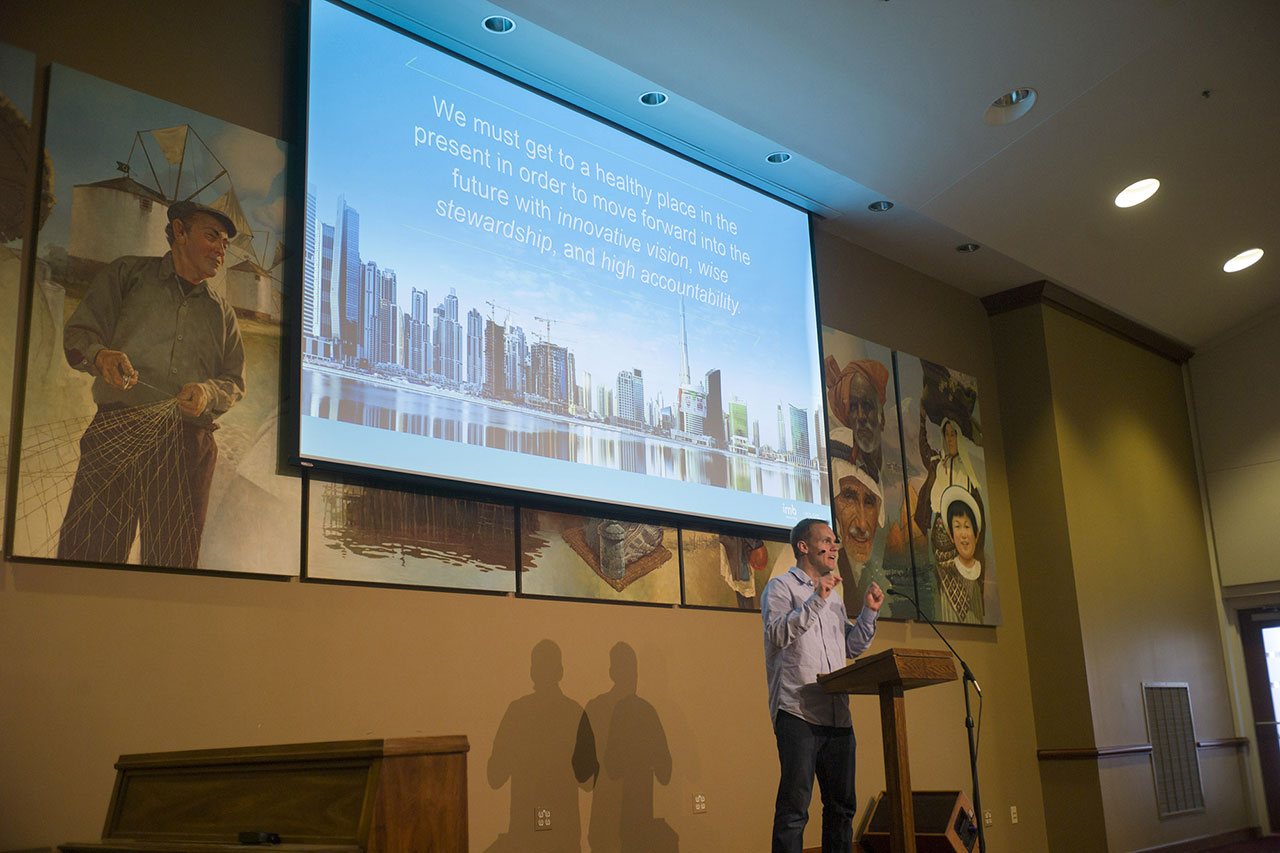Recently, David Platt, president of the International Mission Board (IMB), announced that there will be significant reductions in the number of staff and missionaries on the field because of a six-year $21 million per year overspend. This per year overspend has drastically reduced reserves, which are of great significance when there are thousands of people under your stewardship deployed all over the world. With the large swings in world economics, and almost indescribable variances in individual countries where Southern Baptists have missionaries deployed, adequate reserves are essential.
This news from the IMB startles me. The Southern Baptist Convention (SBC) has been, and remains, the largest evangelical mission-sending agency in the world, and has always held cooperative work as the central focus. The SBC may be known for many things, but no one can deny that the convention has always kept the carrying of the Gospel to the ends of the Earth in the forefront. I pray the SBC’s heart for the world never diminishes, and, indeed, I pray more and more Southern Baptists will be captured by the Great Commission.
When a wake-up call of this magnitude occurs, we often begin pointing fingers and trying to find fall guys; somebody has failed, or we would not have to retrench. Or, others might point to churches and blame them because they are keeping too much money and not giving enough through the Cooperative Program (CP). Others may point to lack of giving to the Lottie Moon Christmas Offering (LMCO). The CP and LMCO comprise the bulk of the IMB budget. Still others would suggest we could sustain a much larger mission force if we would just scrap the CP and go back to the societal method of each missionary raising his own support.
Blame is easy. Solutions are harder.
I am thankful Platt and his team have recognized a very real truth—there is not an unlimited amount of money. I know all the platitudes in regard to God funding His work, and some will say there is just a lack of faith. Perhaps, but leaders do not get to deal with issues as we wish they were; realities must be faced. Reality is that on the short-term, painful adjustments must be made to position the IMB for greater expansion and ministry in the future.
We cannot always fundraise our way out of financial challenges whether at the local church, association, state convention, or the IMB. On a recent phone call to national leaders, Platt was very grateful for the support given through the CP by our churches and for the generosity of individuals who give through the LMCO. I agree with him. Can churches give more through the CP? Many can and should. Is this a time for all of us to look at the balance between what we keep and what we send through the CP? Yes. Should churches and conventions work harder at promoting the LMCO? Some need to do more, but many just need to stay the course and keep up the good work.
Hard times can be cleansing times. Consider one’s own finances. In good times, we tend to allow things in our budgets that are more wants than needs. We tend to do more things, go to more places, and buy more stuff. When hard times hit, we find out what is really important, what are necessities and what are luxuries.
Organizations are the same. During hard times, churches reduce staff, look at ministries to determine their effectiveness, and eliminate those that do not advance the work of the Kingdom. Over the past 20 years as the leader of the BGCO, I assure you, we have gone through several up and down cycles in the economy. We have reduced staff and cut spending many times over the years. These down cycles have always caused us to look deeply at our expenditures and ministries to determine how we can do what we do more efficiently and effectively. In August, my executive staff spent two long days exhaustively looking at everything the convention does and every dime that is spent at the BGCO because of the tough challenges in our Oklahoma economy these days. Changes are required to weather the storm. Change is not a lack of faith, but a commitment to good stewardship of the resources God gives.
Platt and his team at the IMB are doing the same. We can romanticize that everything the IMB does is effective, and there is no waste. As much as we want to believe that statement, it is not true. I appreciate the fact that everything is being analyzed and the IMB is willing to face hard decisions. To do so now will allow long-term viability and effectiveness. One may not agree with their methodology (reducing, through retirement, some of their most seasoned missionaries and leaders), but one is hard pressed to fault the IMB’s commitment to operate in the black. Staff reduction is at the heart of any reset in a church, convention, or mission board because the work is people intensive.
Lest you think I am cavalier in my approach, forgetting that a reduction in the mission force means the progress of the Gospel is slowed, be assured that is far from the truth. But the IMB does not have unlimited resources, and must be responsible stewards of God’s provision. When we, as Christians, are responsible stewards, I have no fear that the lean years will go away. The good years will be even more productive because we have prepared for expansion by being good stewards in the hard times.






